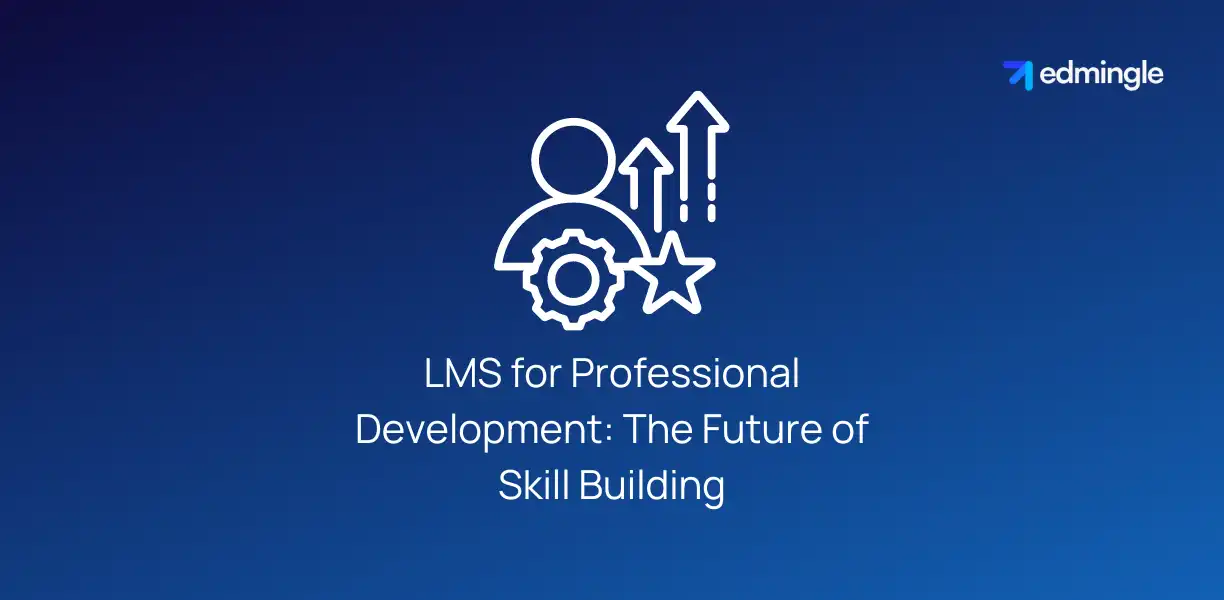
Working professionals are navigating through an era where skill sets can become obsolete almost overnight. Continuous development is not just advantageous; it’s essential.
Aiding this consistently are LMS platforms; facilitating seamless learning activities.
In this blog, we’ll explore how leveraging an LMS for professional development is not just another trend. But an investment in the future of skill development.
What is Professional Development?

It’s the process of improving and increasing one’s capabilities and knowledge in their professional field. This can involve a variety of formal opportunities.
Such as attending workshops, conferences, formal coursework or webinars. The goal is to keep professionals up-to-date with the latest trends, skills and knowledge in their field.
It’s an ongoing learning process that continues throughout an individual’s career & is done in order to:
| 1.Keep Pace with Industry Changes | 6.Enhance Innovation and Creativity |
| 2.Maintain Professional Competence | 7.Improve Performance |
| 3.Advance in Career | 8.Ensure Legal & Ethical Compliance |
| 4.Adapt to Job Market Demands | 9.Retain Employees |
| 5.Drive Personal Growth | 10.Future-proof Careers |
It enables both individuals and organizations to remain agile, informed and competitive. In a global marketplace that values expertise and adaptability.
In short, it’s not just a matter of personal or organizational preference. But a critical component of career sustainability and growth.
Since we talked about compliance, check our article on LMS for Compliance Training.
4 Key Features of a Professional Development LMS
The table below highlights the 4 key features of an LMS for professional development.
| 1.Adaptive Learning | This helps assess a learner’s performance and subsequently provide tailor training. Hence, ensuring that each professional development journey is as unique as the individual. |
| 2.Collaborative Learning | Collaborative tools enable professionals to learn from each other, share insights, and gain new perspectives. This includes peer-review systems, communication and other social learning tools. |
| 3.Certification & Compliance | In many professions, staying certified and compliant is a regulatory requirement. An LMS serves as an efficient record-keeper; tracking course completions, renewals and credits. |
| 4.Integration Capabilities | Connecting with other platforms & tools ensures that L&D happen seamlessly. Without any interruptions. This includes integrations with third-party apps like HR systems, project management software and more. Related Article: LMS Integrations. |
These four key features represent the core of an LMS tool for professional development. By leveraging these, professionals can experience comprehensive learning experience.
12 Top LMS for Professional Development in 2024
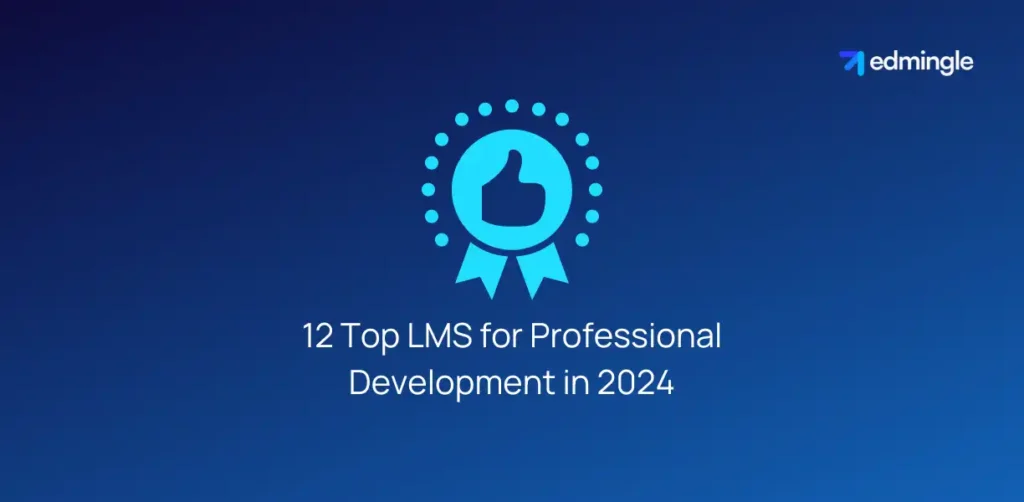
In the world of professional development, the right learning management system can be a transformative tool. Let’s explore the top 12 LMS options shaping the landscape of skill development this year.
1.Edmingle
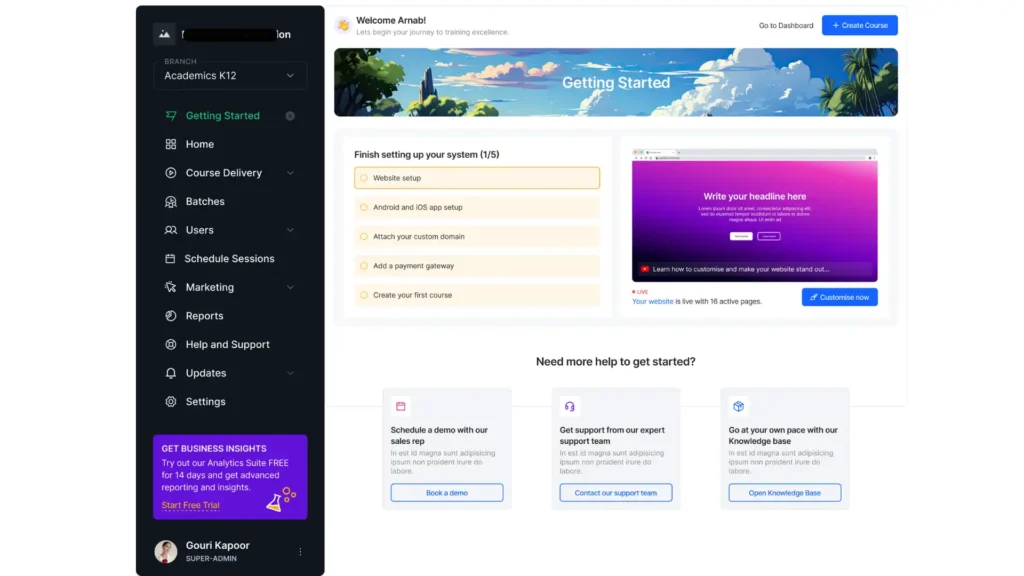
A widely recommended SaaS LMS, Edmingle offers a friendly user interface. Combined with robust functionality & a wide range of useful features. It’s particularly lauded for its:
- Seamless integration capabilities
- Multiple batch & branch management features
- Exceptional customer support and service
Thus, making it an excellent choice for organizations looking to develop & deploy custom training content.
Trusted by education & training leaders, the likes of which include McGraw Hill, Aditya Birla Education Academy, ISKCON & more.
Edmingle has been listed in the top 4 LMSs in India by Capterra. Also ranked #1 in the list of Best Learning Management Systems of 2023 by SoftwareSuggest.
2.Trakstar Learn
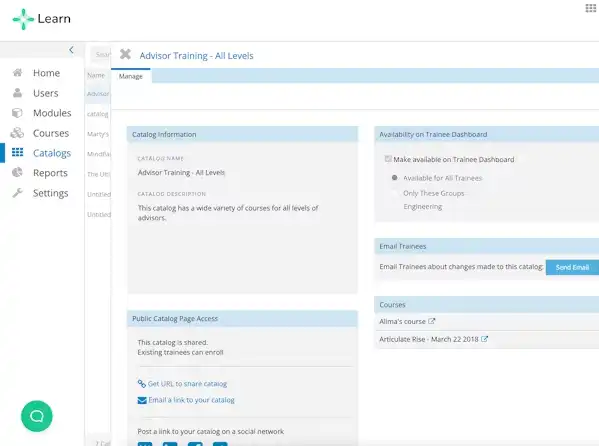
Trakstar Learn aligns learning initiatives with organizational/business goals. Its helps in performance management, tracking progress on employee development & linking learning outcomes to KPIs.
3.Docebo
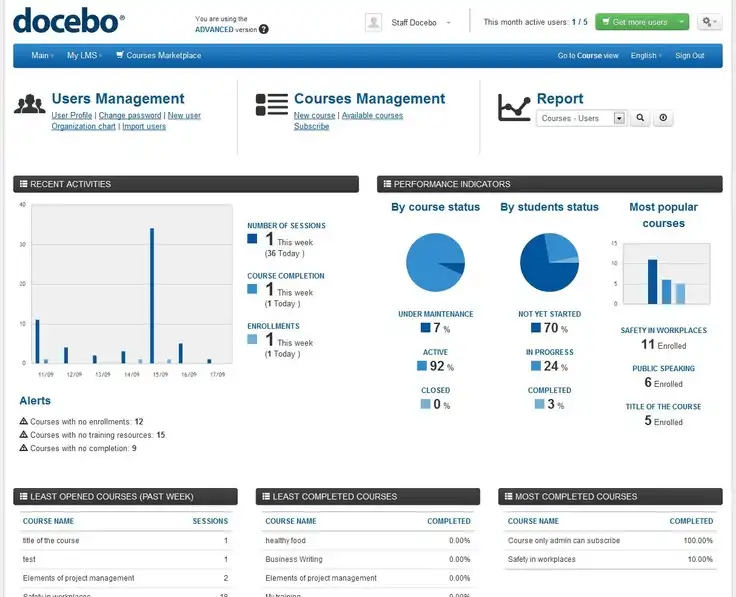
Known for its AI-powered recommendations, Docebo aids personalized learning experiences with its intuitive interface. It offers an engaging user experience & can scale for both small businesses and large enterprises.
4.iSpring Suite
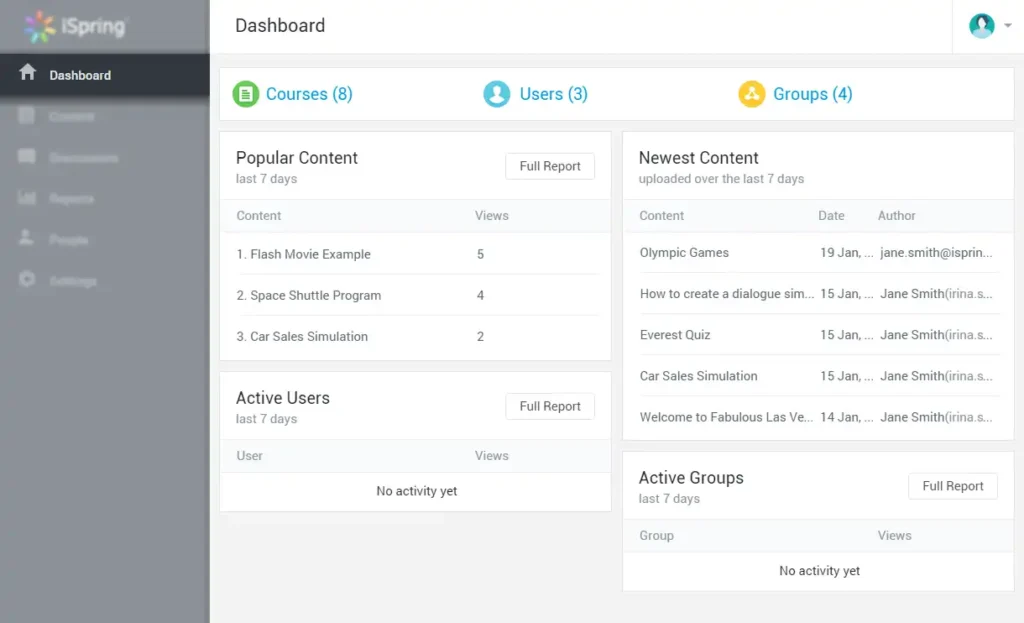
iSpring Suite shines with its powerful e-learning authoring tools. It’s best for organizations that prioritize interactive content.
5.Tovuti LMS
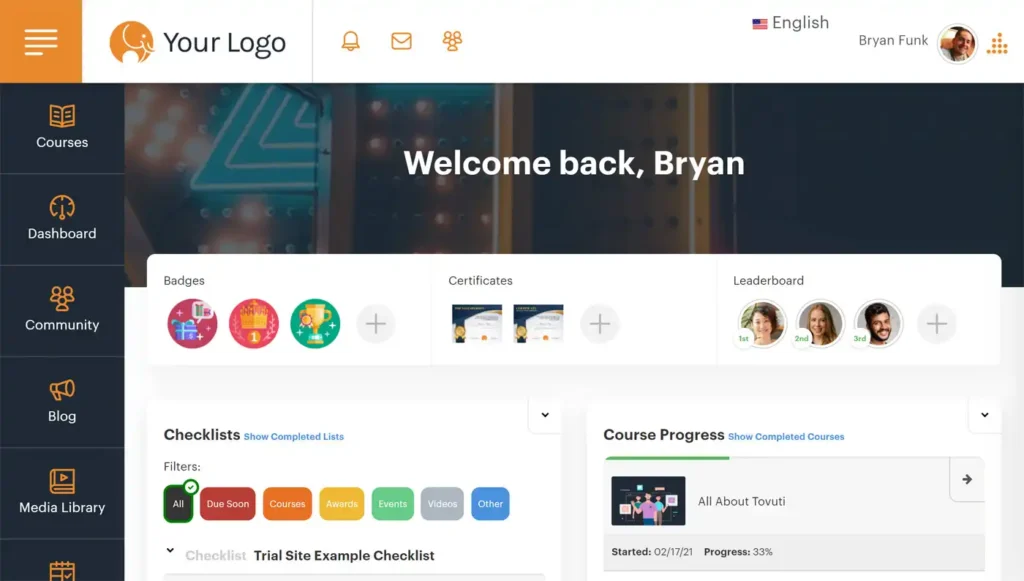
Tovuti LMS is acclaimed for its comprehensive suite of interactive features. It offers an interactive and gamified learning environment. Coupled with powerful reporting and analytics tools.
6.Matrix LMS
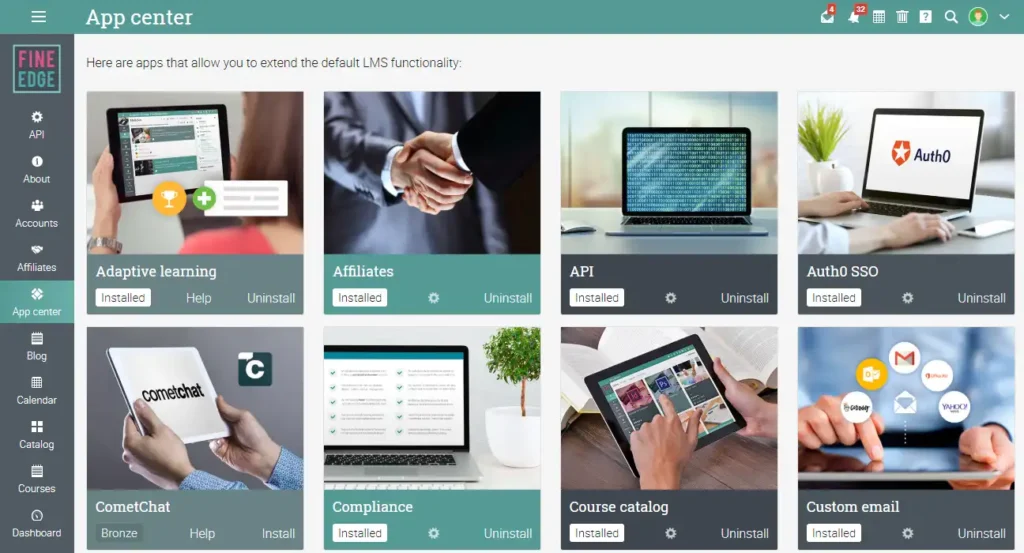
Matrix LMS boasts a sleek, modern, intuitive & user-friendly interface with a rich feature set. It has strong social learning capabilities, integrations & competency-based learning paths.
7.TalentLMS
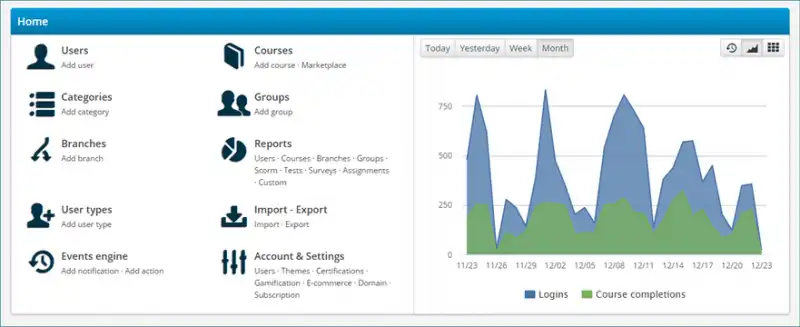
Designed for simplicity and efficiency, TalentLMS is an easy-to-use yet powerful LMS. It offers a cost-effective solution without compromising on essential or additional features.
8.360Learning
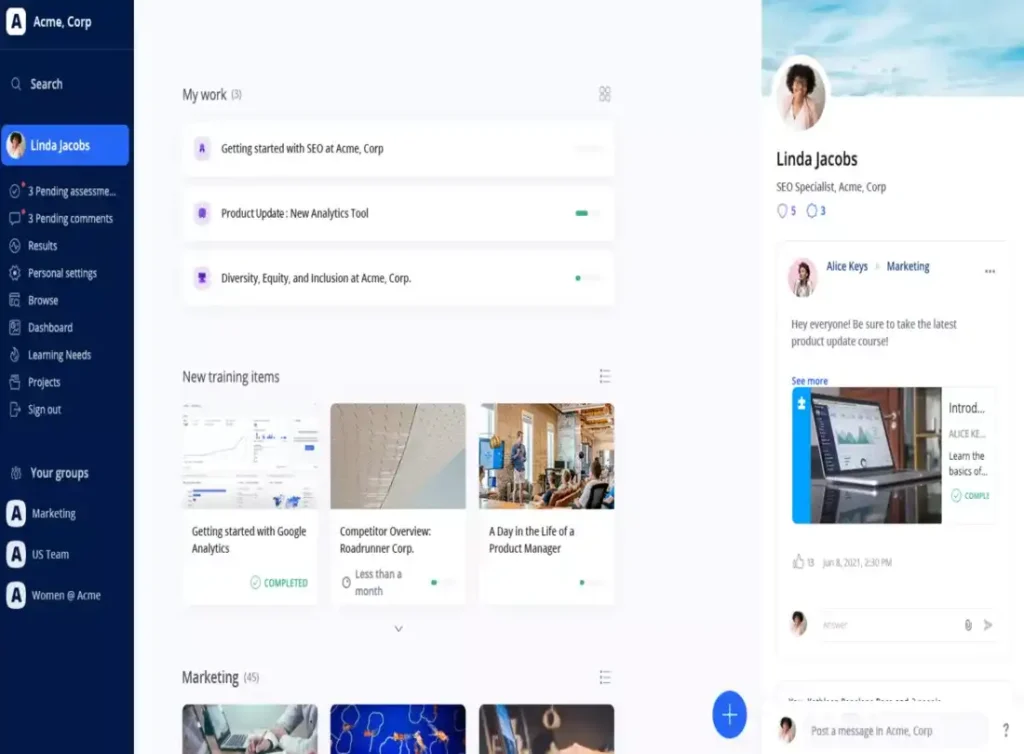
360Learning stands out for its collaborative approach to learning. It promotes a culture of peer learning and knowledge sharing.
9.Cornerstone OnDemand
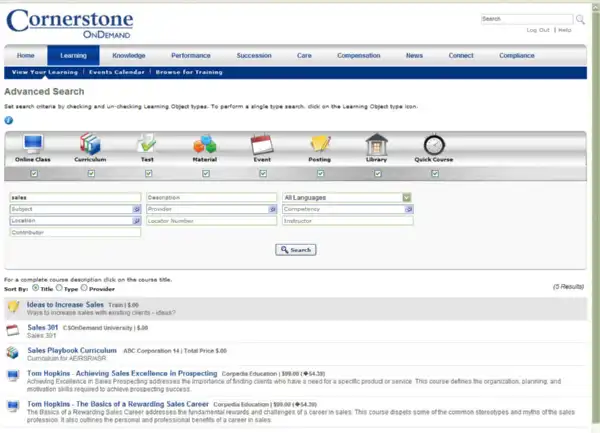
A robust and scalable LMS, Cornerstone OnDemand is suited for with complex L&D needs. It integrates learning with other processes like HR. Thus, providing a holistic approach to employee learning.
10.Articulate
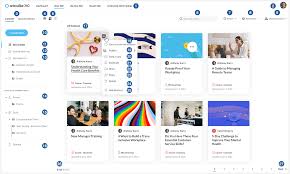
Articulate is renowned for its suite of e-learning authoring tools. It’s a great fit for creators who want to produce highly interactive, scenario-based training courses.
11.Moodle
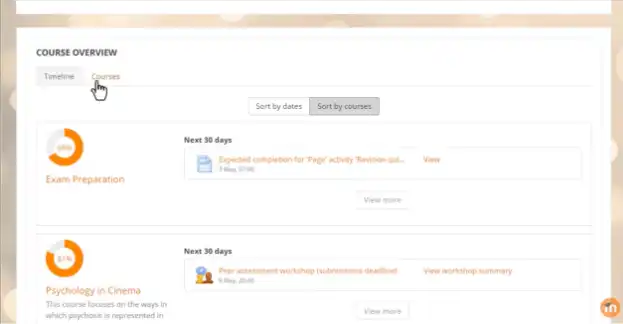
Moodle, an open-source LMS, is known for its flexibility and customization potential. Ideal for educational institutions, it offers a range of plugins and themes.
12.Canvas
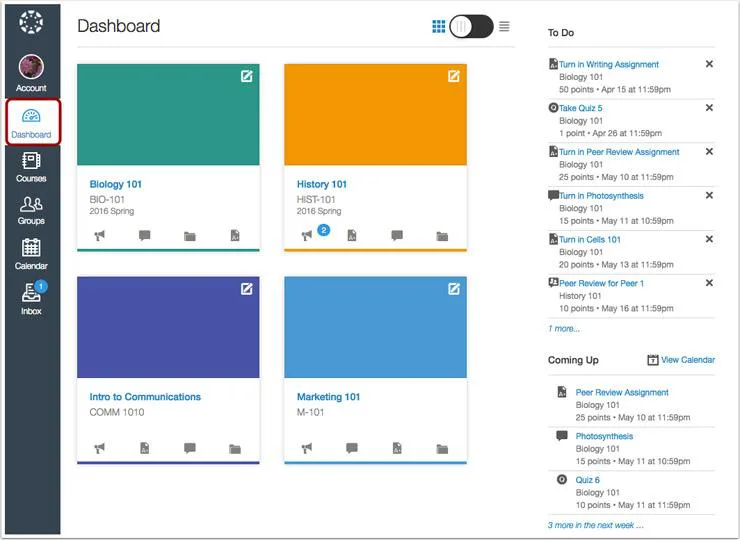
Canvas is widely used in both; academic & employee training settings. Known for its intuitive design and ease of use, it facilitates an engaging learning experience.
Each of these LMS platforms brings something unique to the table. In the process, catering to the diverse needs of learners and organizations.
Choosing the Right LMS for Professional Skill Building
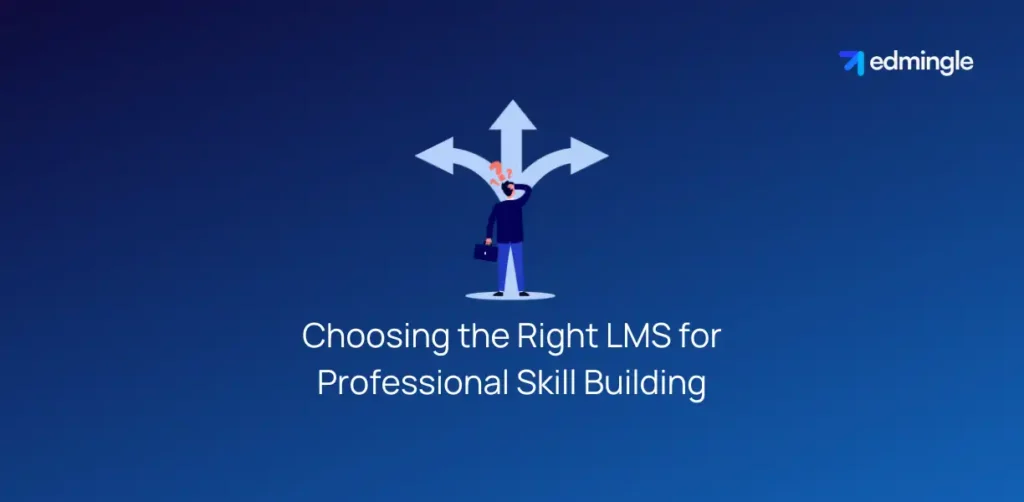
Selecting the right LMS is a relative yet strategic decision. It depends on your organization’ L&D objectives and other specific needs.
Begin by evaluating if the learning platform you’ve shortlisted aligns with these values.
Next, check about their scalability, user-friendliness and compatibility with existing systems.
Further ahead, consider important factors like mobile learning, technical support & customer training sessions. Along with other services the vendor offers.
These checks can be easily completed via an LMS demo.
Finally, don’t overlook the importance of an LMS free trial period. This ensures the platform feels right for your team. Make sure to also assess the LMS pricing model.
Also make sure to read user reviews on listicles about learning management systems.
The introduction of a new LMS should be smooth and well-communicated. And for that to happen seamlessly, it is necessary to clearly communicate the benefits & relevance of the learning management system to your employees.
Remember. The more employees feel the LMS meets their needs & contributes to their professional growth, the more likely they are to embrace and utilize it.
Conclusion
In the current world of rapidly evolving professional skill requirements, staying ahead means not just acquiring new skills. But in the meanwhile, also embracing new ways of learning.
LMS platforms open doors to a future where learning is limitless, accessible and streamlined. As professionals & organizations grow competitive over time, adopting an LMS for professional development becomes a necessity.
When equipped with the right tools, not only are the challenges met but thriving in an ever-changing world becomes easy too.
FAQs on Professional Development LMS
1.How does an LMS track and assess professional growth?
An LMS monitors learner progress through courses and training materials. It includes tools for assessments, quizzes & exams to evaluate learners’ understanding.
2.How does an LMS facilitate remote learning and flexible online learning for professionals?
An LMS provides online access to learning content and online courses. Thus allowing enhanced learner engagement regardless of their location.
3.What types of training can be delivered through an LMS?
An LMS can deliver various types of training. Including but not limited to technical & soft skills, compliance, leadership, management and industry-specific courses.
4.Can small businesses benefit from an LMS for professional development?
Small businesses can provide quality training programs to employees. While benefitting from the efficiency and cost-effectiveness of using an LMS.

Leave a Reply